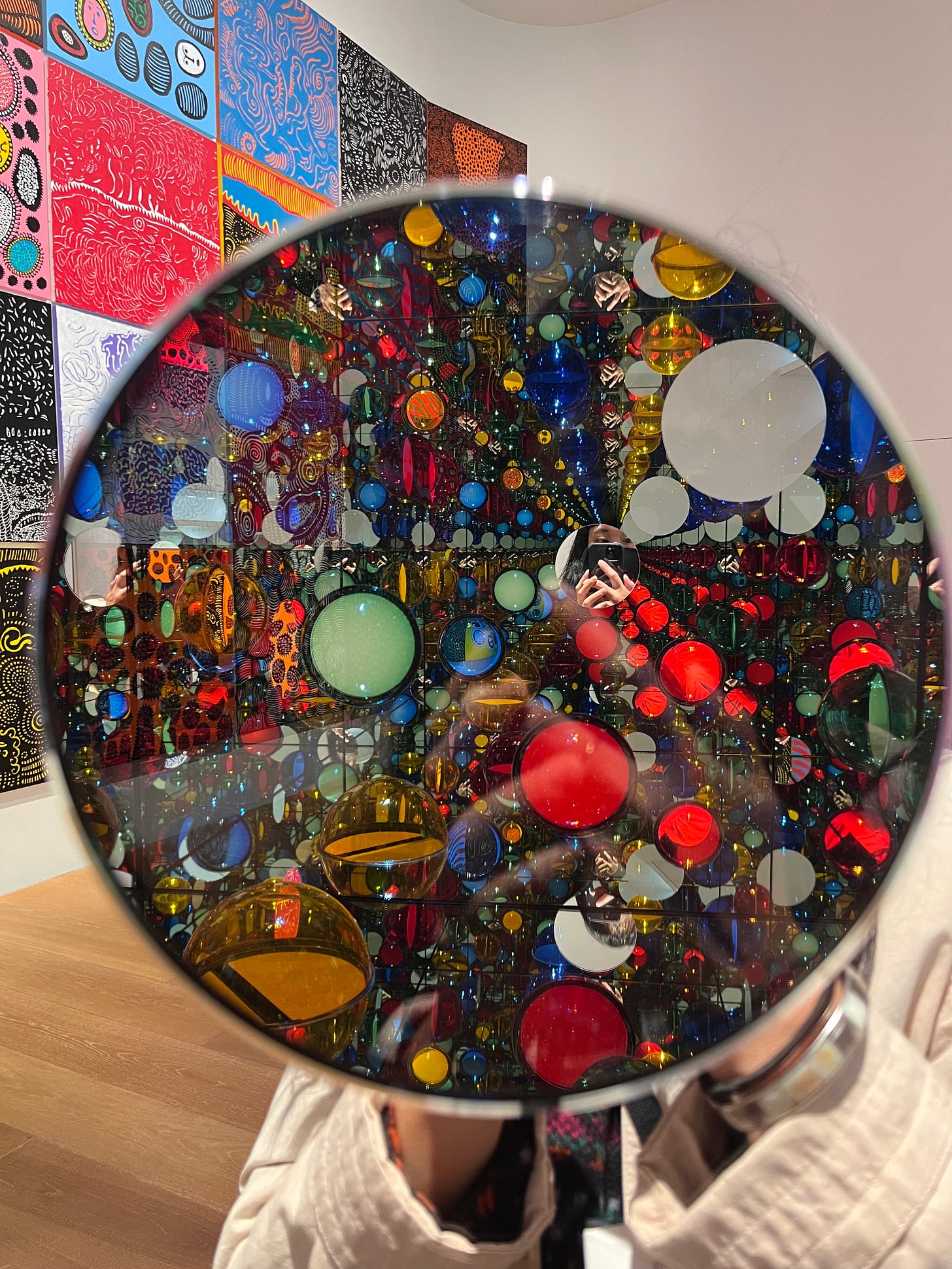Type cast
A test of character
Look, I’m not a believer. And yet, two weeks ago I was sitting in the office of a neighborhood clinic, having my arm stuck with needles, and I looked up at the nurse and asked if she could stick one more in.
“I don’t know my blood type.” Upon hearing this, the nurse seemed to lean very far in and fall backwards at the same time. “Why do you want to find out?” I gestured to her reaction of extreme surprise. “Because I live in Japan.”
Blood type personality theory developed in Japan in the 1970s and has since become immensely popular, spreading to Taiwan and South Korea. Like the Chinese zodiac or Western astrology for other cultures, blood type in Japan is the dominant mode of making sweeping assumptions about character and coming to wild conclusions about compatibility. In my first Japanese school there was a student from France who told us he’d ordered a kit off Amazon right before he left home so he would know his blood type when people asked in Japan; his Spanish girlfriend said she found out by texting her mother to ask one night. To which her mother responded when she woke up in the Spanish morning, “are you ok????”
I haven’t donated blood before, as I come under the recommended weight limit; but after that class, annoyed at not being able to participate in a conversation about my ego, I emailed my doctor’s office in Manhattan to ask my blood type, and was told they don’t keep that information on record. So for the last few years I’ve walked around in Japanese society feeling like a zombie with no personality. Without this key information, how would I ever know if I was a stressed and sensitive type (obviously) or a strong-willed and arrogant type (completely)? How would I know if I was getting along with the people I got along with? And crucially, how would I know who was my type?
Twenty minutes later, the nurse came by with the final needle. I felt relaxed that day in the office of all women: two administrative assistants, this nurse who addressed me in a bizarrely familiar Japanese, and the almost astringently enthusiastic doctor, whose high, bold voice could be heard from the waiting room giving detailed medical advice. There was a lot of excitement as I explained for the second time that day that people in my country don’t care about this. “What do we think she is?” the doctor said conspiratorially. The nurse swabbed my forearm. “I think A,” she said down through her glasses. “I have no idea what that means,” I said. “Look at her, she’s so serious.” “Ohh, A,” said the doctor. “I’m AB,” she said, tapping a hand to her chest with pride.
I have a distinct memory of being in elementary school and thinking about being born in the year of the dragon. I had already concluded that having a personality based on the month you were born in was illogical, that nothing connected me to the other September babies I knew, so astrology was clearly a hoax. (I think I had just read a magazine horoscope that made no sense.) The idea that I might have something in common with everyone else who was born the same year as me, which at age ten was 99% of the people I knew, was so obviously incorrect that I decided it must not even be a part of the system of thinking. Despite the fact that I was raised by two medium-level superstitious Vietnamese people who believe in the cycles of luck and misfortune ruled by the Chinese zodiac, it wasn’t until I was in my late twenties that I found out that certain character traits are associated with certain animals. It was so obvious, yet I had rejected the possibility outright and never looked back. When I found out that births in Hong Kong, Singapore, and Taiwan spike in dragon years, as it’s seen as a powerful sign, the rigidity of my belief system—that people believe and want to believe in a process of reproducible trials and results—came crumbling down, not for the last time.
But really the skepticism I bear toward personality theories runs more deeply than a mistrust for things that can’t be subjected to a scientific process; I struggle with the very concept of personality.
At some point during the height of my friend circle’s obsession with Myers Briggs and the Big 5, I took an online test and the results said INFJ. Over the years I would take the test again in various states of knowledge and bias, and I could never reproduce the results: ENTP, ISTJ, INTP, ENFP, and INFP have all come back.
Looking at the questions this week, I found a vast swath of the dichotomies inscrutable: “I make decisions with my head” and “I make decisions with my heart.” “I follow a plan” and “I act on impulse.” “I am always prepared” and “I am often unprepared.” When? With whom? Am I hungry? I looked for a drop-down menu that would let me filter based on “weather.”
Two of my best friends would swear by my ability to be on time. Yet if you poll the men I’ve dated, or any of my former roommates or collaborators, I’m sure the results would fall at the opposite extreme. I have been variously told that I have an especially grounding presence and that I’m destabilizing and impossible to predict. True to form, when I asked various friends what they thought my blood type was, I heard: A, O, AB, “not an A nor a B,” and “anything but O.”
How could I be so in-between, so flexible, so reactive? Earlier this year in class, we received a handout of Japanese terms listing groups of character traits: “serious,” “kind,” “active,” “quiet,” “stormy,” and were asked to discuss them in relation to ourselves. I spluttered, had several identity crises, laughed, muttered, and finally said, “I’m all of them.” I’m not a person, I thought for the umpteenth time; I’m a vessel, an actor, a No Face.
“Is it normal for there to be nothing behind the mask?” as Sayaka Murata writes in her story “Hatchling.”
In the story, which I wrote about in my profile of Murata, a woman named Haruka has five distinct, barely overlapping personalities based on whatever social context or friend group she finds herself in. Her fractured identities come to a head when she finds herself engaged to someone who thinks she’s completely scatter-brained and unreliable. She starts to disassociate, unsure of how to tell him about the real her: That it doesn’t exist. Finally the narrator offers a sixth, despicable persona to her future husband, and to her surprise, he breaks down in relieved tears. He embraces her, devotes himself to this version of her completely, and gives the final, ugly Haruka a new name: Ha-chan.
introvert extrovert angel devil mother child god ant secure fearful avoidant warm cold chill peaceful grounded chaos destruction aggression sun mirror black hole fire water earth air yin yang he she they them it counselor debater logician campaigner mediator pragmatic organized precise diplomatic fragile complicated eccentric confident independent creative genius monster is there a difference between thinking and feeling I struggle to agree or disagree with any of the above and yet yes i said yes i will yes
(At this point in the monologue, M stops me and says, “All I hear is Virgo.”)
I’m not afraid, like the other Ha-chan, of being found out to have a multitudinous ego; I’m growing less afraid that, because I’m not like those ironclad INTPs and INTJs in my life, who walk unwaveringly along the path of logic, that I’m weak or have a weak personhood; but increasingly I find I am afraid that there’s too much inside, that at some point all that thrashing energy will turn and churn and beat and bash and eventually eat itself and explode spectacularly into some kind of dark phoenix oblivion.
But probably not. After all, I’m not that kind of person.
I went back to the clinic the following week. Before we went over the cholesterol reading, first we obviously had to find out who I was. My doctor did the onomatopoeic equivalent of a drum roll as she unveiled the results of my bloodwork. “ジャジャーン!A!” I looked at the nurse, who had guessed correctly. “Is it what you expected?” asked the doctor. “It’s what you all expected of me,” I said, giving my shyest, most reliable, polite, and fastidious face back.




I think I'm kinda agnostic about personality indicators but find them interesting. I keep forgetting my blood type and had no idea it was tied into personality traits - now of course I'm curious. :-)
I loved this grief!
I'm reminded of a time not long ago when my brother wanted to know my blood type. (I didn't know and still don't). When I asked him why, he said a friend of his had to eat red meat or he would "get headaches" and his body would get "all out of whack". This was allegedly because his blood type was the kind that required red meat. (I've been vegan now for several years, and that was the context of our conversation). His friend's wife was a nutritionist, "so she would know". And my heart kind of sank. One pseudoscience book claiming a connection between blood type and diet came out, and the idea just kept lingering on.
Then again, he also claimed in the same evening to have successfully stuck a magnet to my mom's arm after she got vaccinated. And that aliens probably made contact with the Mayans. There was a whole thing about it on the History Channel, he said.